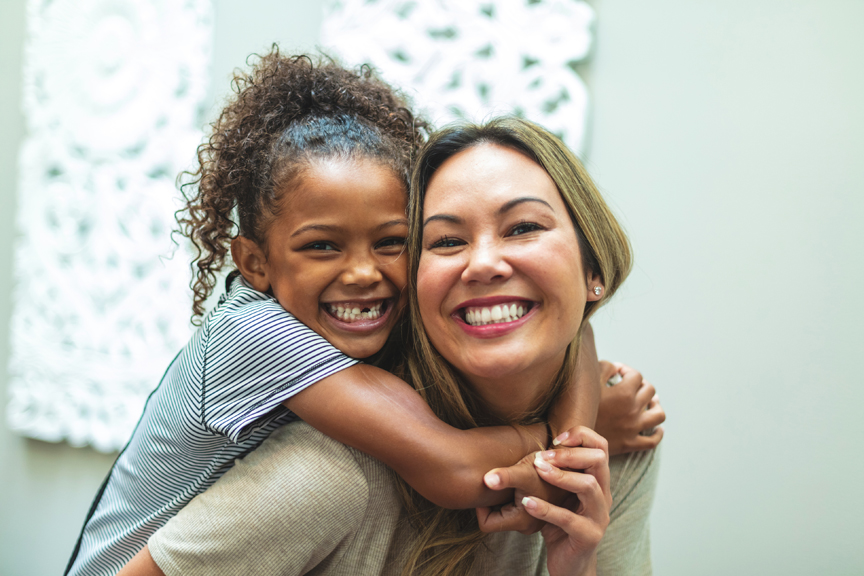- Parenting
- Safety
Finding the right care in an emergency

In an emergency — when schools, camps or child care sites are closed — many working parents struggle to figure out who will take care of their children. Some may turn to grandparents, relatives, friends, neighbors or a babysitter to fill the gap.
Once you've found someone you trust to watch your children, it’s important to make sure that person has the tools to keep your kids safe.
Here are 11 quick safety tips for leaving your child alone with a babysitter:
- Phone numbers: Always have your phone number(s) and emergency phone numbers (911, the child’s pediatrician and poison control) in a visible location, such as on a refrigerator. Do you have someone nearby who can act as emergency back-up? Add that person’s number to the list. Your home address also should be listed.
- Medicine: If your child takes medication, leave specific written instructions on where the medicine can be found, what time it should be taken and the dosage.
- Allergies: If your child has a food allergy or dietary restrictions, prepare food and have snacks set aside. Leave written instructions as well. If you are dropping your child off at a babysitter’s house, bring meals/snack if your child has food allergies or dietary restrictions.
- Cooking: If you are leaving your child alone with an older sibling or teenage babysitter, prepare meals that don’t need to be heated.
- CPR: Know if your babysitter has CPR training. The American Red Cross offers online CPR classes as well as online babysitting classes at redcross.org.
- First aid: Show your babysitter where your first-aid kit and fire extinguisher are located.
- Water safety: If you have a pool or your home is near a body of water, you need barriers to protect your child. That means:
- Fencing around the pool with a self-closing, self-latching gate.
- Door alarms on any doors leading to a body of water.
- Childproof locks on the doors that are high enough so a small child can’t reach them.
Make sure any home where you leave your child has barriers if there is a pool or if it is near a body of water.
- Visitors: Establish ground rules on who else can be in your home. If you are dropping off your child at someone’s home, get a sense of who else will be there during the day.
- Car safety: Is your babysitter going to be driving with your child in the car? If so, make sure they have a car seat or booster seat. If they need to borrow the car seat in your car, install it before leaving. Don’t assume your babysitter knows how to properly install a car seat.
- Sleep safety: If your babysitter is watching an infant, it’s important to talk to them about safe sleep. Grandparents and older relatives may have put children to sleep differently in the past. Emphasize that research has shown the safest way to put a child to sleep is by remembering the ABCs:
- ALONE- Your baby should always sleep alone.
- BACK- Your baby is face up on his/her back to sleep.
- CRIB- Your baby is in a crib with a firm mattress, a tight-fitting sheet and nothing else.
If you are leaving your infant at someone’s else, bring a portable crib.
- Bike safety: If your child will be riding a bicycle, scooter or skateboard when you are gone, let the babysitter know that your child must always wear a helmet.
Make sure to look around your home and address any other potential hazards. A little preparation for a babysitter can go a long way in giving you peace of mind when you leave.
SOURCES:
• Florida Department of Children & Families
• Safe Kids Worldwide
• American Red Cross
You May Also Like
-
- Parenting
- Safety
Who's watching your child?
When you leave your child with another adult, you need to ask yourself some basic questions about the person to ensure your baby is safe. …
Read More -
- Health
- Parenting
- Safety
Does that helmet fit correctly?
Need help finding an affordable bike helmet for your child? Not sure the one you have fits correctly? These resources can help. …
Read More -
- Health
- Parenting
- Safety
Safe sleeping arrangements can save your baby's life
Did you know the risk of infant death is 40 times higher when your baby sleeps with you? Find helpful safe sleep tips here to prevent a tragedy. …
Read More
Related resources
-
- Health
- Other
- Safety
Florida's Poison Control Centers
Hotline for poisoning emergencies or related information and resources in Florida
800-222-1222 Website Email -
- Other
- Safety
American Red Cross — South Florida Region
Services and programs for families facing emergencies
561-833-7711 Website -
- Parenting
- Safety
Safe Kids Palm Beach County
Local child safety information and assistance, including car seat installation, bike helmet fitting, poisoning prevention, TV tip-over prevention and more
561-841-3500 ext. 4011 Website Email -
- Other
- Parenting
- Safety
Florida Department of Children and Families
Safe Sleep — information on how to create safe sleeping space for babies to prevent infant death
Website
